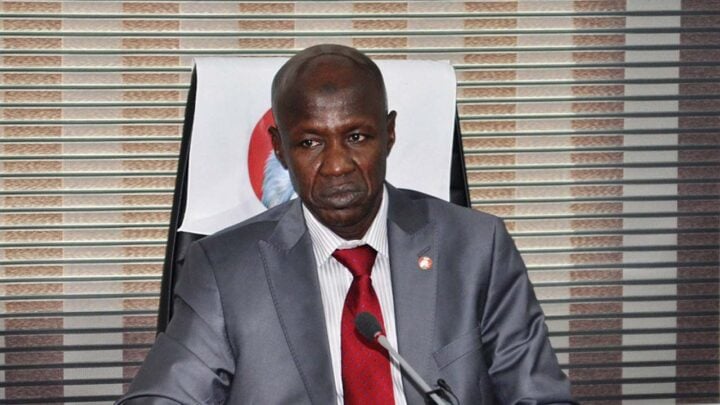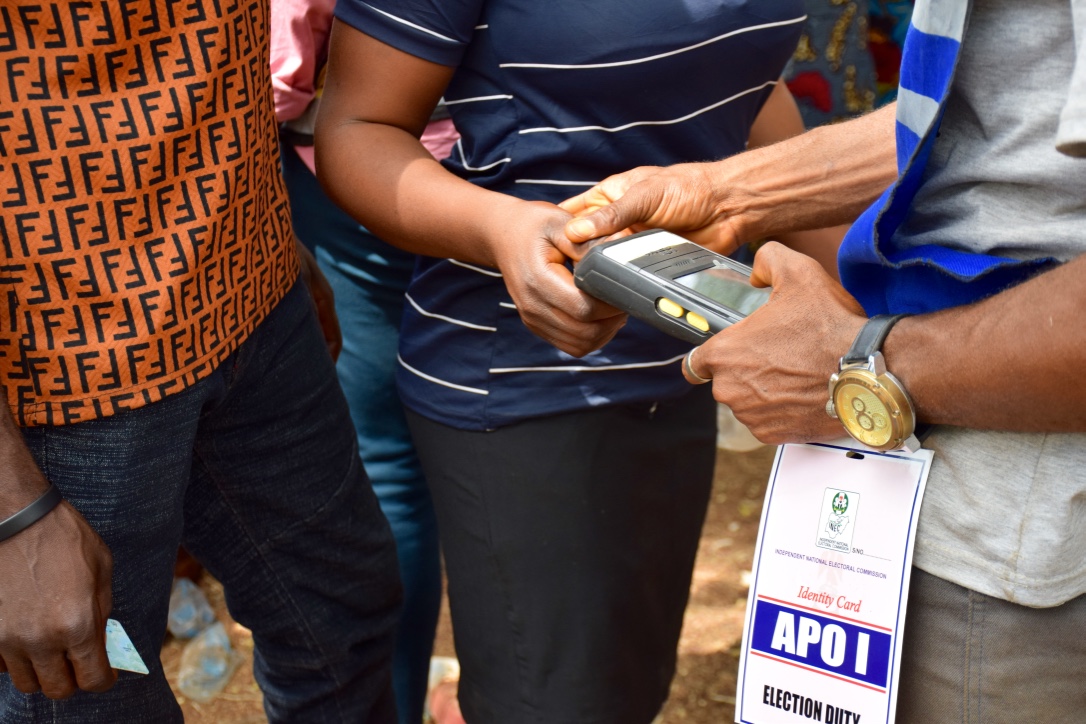Much has been written about the suspension from office of Ibrahim Magu, former Acting Chairman of the Economic and Financial Crimes Commission (EFCC). Magu was reportedly arrested in front of the EFCC office in Abuja by security officials on Monday, July 6 2020, over sundry allegations of corruption, insubordination and abuse of office. He was reportedly driven to the Presidential Villa, where he was grilled by a presidential panel, chaired by Justice Ayo Salami, a former president of the Court of Appeal. The panel was set up to probe various allegations against Magu allegedly following a petition by the Minister of Justice and Attorney General of the Federation, Abubakar Malami, and the Department of State Service (DSS).
One of the deductions from Magu’s suspension from office is that there has possibly been a change in the balance of forces in the Villa politics, with those thought to have been protecting Magu over the years now considerably weakened in the new power equation. It should be recalled that the two times Magu’s name was submitted to the National Assembly for confirmation, it was done by Professor Yemi Osinbajo as Acting President while the DSS opposed his confirmation on each of those two occasions.
While Villa politics and rivalry among the contending centres of power may have played a role in the suspension of Magu, my opinion is that his suspension presents an opportunity for an evaluation of the EFCC and the whole fight against corruption.
In the interest of open disclosure, I need to confess that I have been a consistent critic of the EFCC and its methods over the years. Similarly I have never been a fan of Ibrahim Magu. For instance when the eighth Senate rejected his confirmation for the second time on the grounds of adverse report by the DSS, I argued that his continued retention as the Acting Chairman of the Commission made mockery of the Senate confirmation process (whatever might have been the real reasons for his rejection by the Senate). I equally argued that his retention as Acting Chairman would set a dangerous precedent where in future, a nominee likely to have issues of confirmation in the Senate could be appointed to that office in an acting capacity ad infinitum. Magu acted as Chairman for five years – though the tenure of that office should have been for four renewable years. I am against the implicit notion that the effectiveness of the EFCC is dependent on a mythical ‘superhuman’ who heads it. Such a messianic complex is antithetical to institution-building and often makes Heads of the agency pretend to be that mythical image.
Advertisement
Though Magu has been suspended, my feeling is that whoever succeeds him will inevitably face the same fate he and his predecessors faced: all left office in controversial circumstances, if not disgrace.
My contention is that the fundamental problem of the EFCC is more with the body itself than who heads it – as important as that may also be.
The truth is that the EFCC’s system of fighting corruption is built on the same ‘gra-gra’ (grandstanding) of its predecessors such as Abacha’s Failed Banks Tribunal and Buhari’s War Against Indiscipline which focused on the symptoms of a more fundamental societal malaise. Like its predecessors, the EFCC erroneously treats corruption as a problem of moral lapse rather than an inherently systemic problem that is exacerbated in climes where the nation-building processes have manifestly failed – or engulfed in deep crisis. EFCC’s problem is also worsened by a perception that it is often a tool used in fighting against the government of the day’s perceived political enemies.
Advertisement
The EFCC’s style of ‘naming and shaming’ the ‘high and the mighty’ especially under its pioneer chairman Nuhu Ribadu and the accompanying media trial, tap into Nigerians’ distrust of the justice system by bypassing the courts to take cases directly to the courts of public opinion. In a system where the justice system is seen to be anything but blind, such media trial may have its place. But it can never be an effective substitute for proper trial of those suspected of corruption. Rebuilding trust in the judiciary is therefore a necessary condition in any meaningful fight against corruption. Remarkably the judiciary is not insulated from the society so the problems of the judiciary and its commodification of justice merely reflect the problems in the larger society.
While some feel that the fear of the EFCC is the beginning of wisdom for the politicians and the rich, I feel it is a wrong metric of assessing the relevance of the body or its effectiveness. Methodologically, the best way of assessing the impact of the EFCC in the fight against corruption is to use the ‘before’ and ‘after’ benchmarks – that is, to pose the question: what was the situation before the EFCC was set up and what is the situation now? Procedural issues like how much money it succeeded in confiscating or the number of convictions it secured are really mere details. If, as anecdotal evidence suggests (and from what succeeding governments tell us of their predecessors in office) the malaise seems to be rather increasing, one needs no further evidence to conclude that the EFCC and similar institutions used in fighting corruption in the past simply have failed. In the current situation where the structural and environmental factors that predispose people to corrupt practices are increasing, it makes it even more difficult for the EFCC to succeed.
The EFCC does not help matters by spreading itself too thin to the extent that it is also a debt collector.
We need to reset the whole fight against corruption and the EFCC may still be relevant in some ways. A general conditional amnesty for those accused of certain forms of financial corruption could offer the needed break with the failed, unproductive, selective justice and vendetta-driven strategies of the past.
Advertisement
Professor Ayade’s Cross Rivers State
Professor Benedict Bengioushuye Ayade (born 2 March 1968), the power-bike loving ‘funkie’ Governor of Cross Rivers State has a lot to prove – not just to the people of Cross Rivers State but also to two categories of Nigerians – the youth and academics. Professor Ayade became Governor of Cross Rivers State at a relatively young age of 47. Even if some dispute whether a 47 year old man could be called a youth, he at least qualifies to be called young at heart – with his dress mode and his power bike displays at the 2017 Bikers Carnival in Calabar.
Apart from being a ‘representative’ of the youth, as a former University Professor, Governor Ayade also carries the banner for academics. Ayade holds a PhD in Environmental Microbiology and was a Professor of Microbiology at Delta State University, Abraka. He also holds an MBA degree and an LLB degree in Law.
There have been lingering questions of whether youth correlates with performance in office and whether academics in Government, especially as Governors or Presidents, bring anything special to governance.
Advertisement
For Governor Ayade, the jury is still out on both counts. He has shown youthful burst of energy in the things he does and in his manner of dressing.
Academics generally like to be contrarians – they do not like to flow with the tide: we saw this in Professor Ayade’s position on COVID-19, where among other controversial postulations, he argued that if you wear masks, you do not need to observe physical distancing – a position that has been condemned by many, including the Nigerian Medical Association. He has embarked on many ambitious projects – some raising questions of whether they are sufficiently rooted in the people’s immediate needs. For instance he started a 260 km long dual carriage way which he says is a “digital road designed for the 21st century” which would connect many villages in Calabar to other communities outside the state. However some 185 communities in five local government areas of the state, which claim they lost their lands to the project, seem not enthused.
Advertisement
Professor Ayade says the thrust of his administration is the rapid industrialization of the state and building of socio-economic infrastructure. He has embarked on a number of employment generation schemes –Agro-economic Empowerment Schemes for Youths known as G-Money or Green Money, through which he says he will create 1,000 youth millionaires in the first instance. Beneficiaries of the scheme, he said, would be given N1m each, as take-off grants.
There are several other projects – Cala Chika, a frozen chicken factory that he claims will process 22,000 birds per day, a feed mill, a noodles factory and a fertilizer plant. There is equally the CrossRice, which he said would increase rice production in the State from its paltry 50,000 metric tonnes in 2015 to 142,000 metric tonnes annually and a Cocoa Processing Factory, which he says will process 240 tons of cocoa daily that will be turned into chocolate bars for export.
Advertisement
How will academics be perceived as possible Governors after Professor Ayade? Time will tell.
______________
Email: [email protected]
Advertisement
Twitter: @JideoforAdibe
Views expressed by contributors are strictly personal and not of TheCable.
Add a comment







